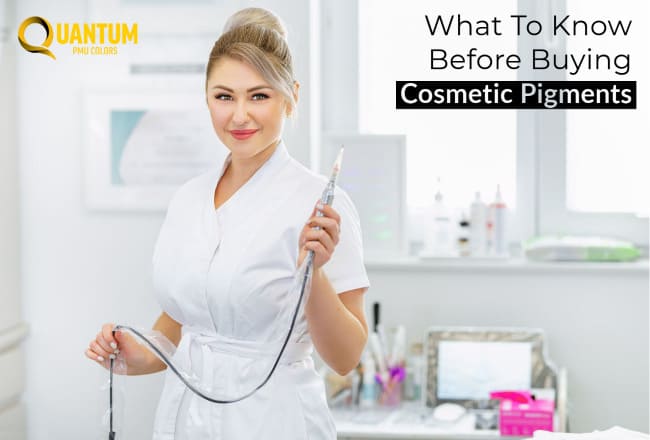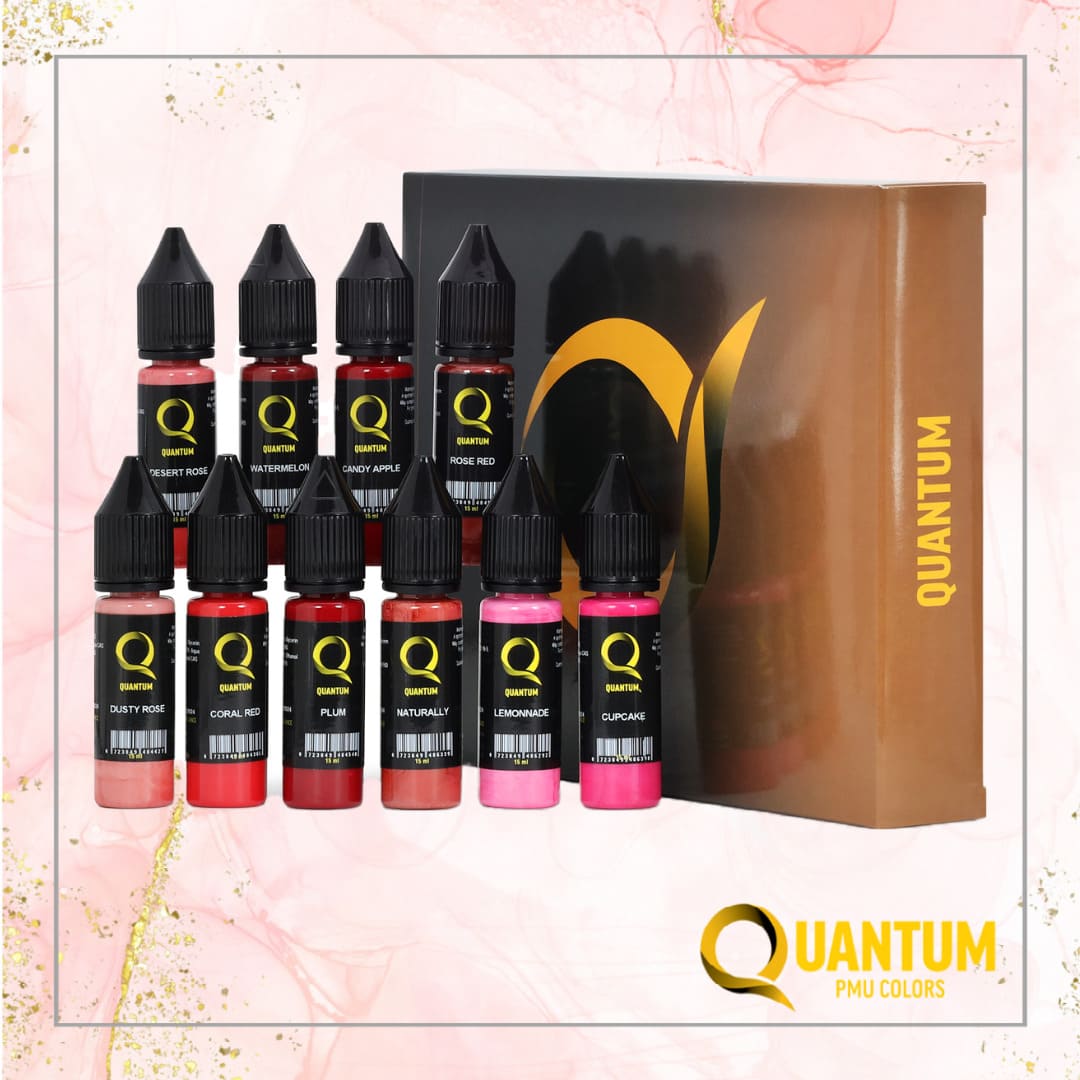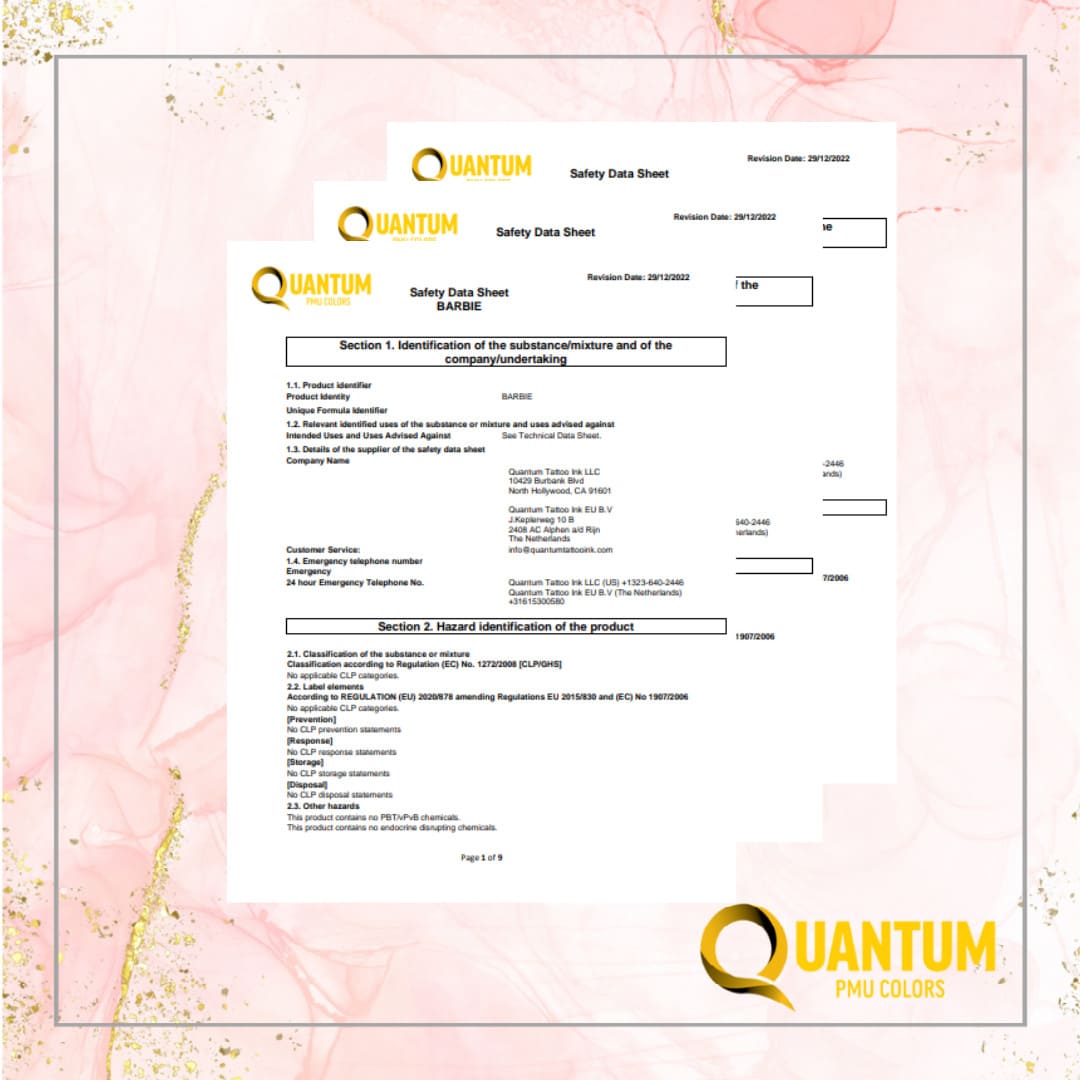What To Know Before Buying Cosmetic Pigments
Mar 7th 2023

While some permanent makeup artists stick with one tried and true brand, others are always on the lookout for the newest colors and the products that will be the best for their clients. Whichever category you fall into, it is crucial to understand what is in the cosmetic pigments that you choose so that you can keep your client safe. Whether you are buying a brand of permanent makeup pigments for the first time or the hundredth, you should know what you are buying. Furthermore, the formulation will vary from color to color. So even if your client was fine with their eyebrow tattoo ink, that doesn’t mean that they will be ok with the lip tattoo pigment that you choose. These tips will help you understand what is in permanent makeup pigments and how to ensure that your client will be safe with the pigments that you choose.
Are the Ingredients of Cosmetic Pigments Regulated in the U.S.?
In the United States, the FDA does not regulate what goes into tattoo ink formulas, this includes permanent makeup ink. Legally speaking, permanent makeup pigments are considered cosmetics. However, the FDA does step in when consumers report problems with a permanent makeup pigment. Historically this has led to recalls but has not led to regulation about how cosmetic pigments are made or what they can contain. That means that there is little oversight as to what goes into cosmetic pigments unless something has already gone wrong.
However, it is important to note that the European Union does have specific standards and requirements that must be met as to the ingredients that can be used in cosmetic pigments. Because we sell products in Europe, we carry Quantum Platinum Label, an EU REACH Compliant line of products that meet these stringent standards. We have also made these products available to our customers in the U.S.
What Actually Goes Into Cosmetic Pigments?

At Quantum, we are proud to answer this question because we know we are using only the very best organic, vegan, and kosher ingredients to manufacture our products. You can find our primary ingredient information right on our website. These ingredients include:
- Vegetable Glycerin: Glycerin is used as a humectant to provide lubrication. It caneither be derived from beef fat (tallow) or plants. The vegetable glycerin we use is a kosher, vegan, plant-based sugar alcohol.
- Ethyl Alcohol: Permanent makeup pigments contain ethyl alcohol to serve as an antiseptic and disinfectant. It has powerful antibacterial and antifungal properties.
- Distilled Water: Water is an important ingredient in permanent makeup ink as it is what makes it fluid and easy to work with. We use distilled water because the distillation process removes all impurities and mineral deposits from the water.
- Eucalyptus: The essential oils found in eucalyptus leaves provide our cosmetic pigments withantibacterial, antimicrobial, and anti-inflammatory properties.
- Thymol: Derived from the herb, thyme, thymol is another natural antiseptic with antifungal and antibacterial properties.
- Menthol: Menthol, derived from mentha plants, has slight analgesic properties. It is used for its pleasant and safe natural fragrance.
Aside from the ingredients listed above, our permanent makeup ink contains natural organic pigments sourced from the earth. You can learn more about the pigments contained in our permanent makeup pigments by downloading the Safety Data Sheet for each color in the language of your choice.
How Can I Make Sure That the Pigments I Choose Are Safe?

Although the regulations for cosmetic pigments are not that stringent in the US, there is plenty that you can do to keep your clients safe. Here are a few ideas:
- Choose permanent cosmetic pigments from companies that are transparent about their ingredients. If they look like they have something to hide, that should raise a red flag. A reputable permanent makeup pigment manufacturer will have all the information that you need to know on their website.
- Ask for the Material Safety and Data Sheet (MSDS). They should have one for each color on their website or be happy to provide it upon request by email.
- Ask your client about any allergies. If your client has allergies, check the MSDS for the ingredients or reach out to the manufacturer with questions. A responsible manufacturer also wants to keep your client safe, so they will be willing to provide the information.
- Consider vegan permanent makeup inks. Organic, vegan pigments are less likely to cause an allergic reaction than animal-based pigments. As a bonus, these are usually cruelty-free and better for the environment. We know ours are.
- Purchase from a manufacturer that sells in Europe. While our Original formula cosmetic pigments are already held to the highest safety standards, having to ensure that our cosmetic pigments are REACH Compliant adds another level of checks and balances to the process of developing and manufacturing our permanent makeup pigments.
- Make sure that the permanent makeup ink you are buying is genuine. Most permanent makeup artists don’t realize that there is a black market for counterfeit permanent makeup pigments. It is crucial to your client’s safety to learn how to spot counterfeit PMU products and make sure that you are either buying directly from the manufacturer or an authorized distributor.
Trust Quantum To Keep Your Client’s Safe
The most important step that you can take in ensuring your client’s safety is to align yourself with a brand of permanent makeup pigments that makes your client’s safety a top priority when developing, manufacturing, and distributing its cosmetic pigments. To find some of the safest cosmetic pigments including, scalp pigments, lip tattoo pigments, eyebrow tattoo ink, and more, shop quantumpmucolors.com

